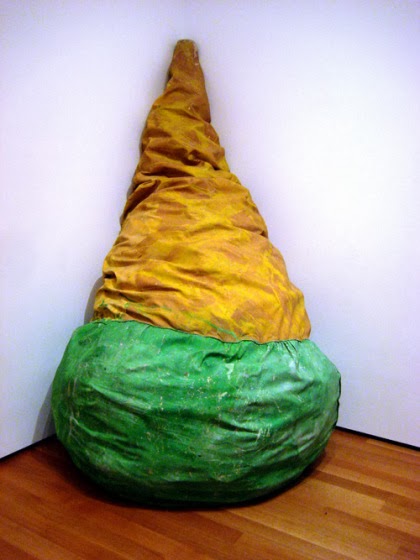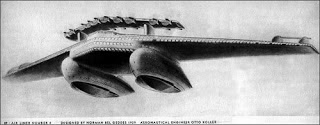Anti design/Radical
design was a movement which began in the 1960’s, it was led by Pop design. Its
goals was to break the values of ‘good design’. Radical design praised
individual creativity and expression and was also popularized by the Italians in
the 60s and 70s. Designers thought that modernism was no longer avant-garde nor
a cultural driving force since the industrialists changed it into a consumerist
marketing venture. Their designs were also surrealistic and the pioneers of
surrealist desgins were:
Carlo Mollino, Ardea armchair:
Claes Oldenburg, soft sculptures soft toilet and giant blt:
Gatti, Paolini
and Teodoro, Sacco:
The first promoters
of radical design were the design and architectural groups; Super Studio,
Archizoom, UFO, Gruppo Sturm, Gruppo 9999, Cavart and Libidarch. They attacked
ideas of what was ‘good taste’ and rebelled against happening and installations
that questioned the strength of rationalism, advanced technology and
consumerism. They turned everyday goods into an artistic level. An important
spokesman for anti design was Ettore Sottsass. They’re designs were meant to be
functional but not necessarily beautiful, their design were as quick to throw
away and be replaced by something new and more functional. Anti-Designers
wanted people to think about the objects they were buying, even if they
ultimately threw those objects away. Designers used rich variety of colours,
decorative elements, materials and created objects which were both useful but
stood out for their bizarrely.
Piero Gilardi, Sassi-“the rocks.” Chairs made of polyurethane which were manufactured by Gufram. The form disguises the function and they’re imitating a natural object. A rock is hard and durable which makes these qualities totally at odds with the function of a chair, which is supposed to be soft and comfortable. So here we have Piero is defying Modernist functionalism.
The Joe Sofa was designed by Paolo Lomazzi and named after Joe Colombo, a legendary Italian designer. Its made of polyurethane, covered with leather and it was manufactured by Poltronova. Like postmodernist design, it’s an overblown symbol designed to communicate on a very basic level. It suggests that forms don’t have to be invented, they can just be recycled.
the art history archive. 2011. anti design. [ONLINE] Available at: http://www.arthistoryarchive.com/arthistory/antidesign/. [Accessed 29 December 13].
Fiell, C & P F, 1999. design of the 20th century. 2nd ed. china: ISBN.
Thames & Hudson, T&H, 2004. design since 1900. 2nd ed. singapore: C.C Graphics.












.jpg)







.jpg)

















.jpg)



















